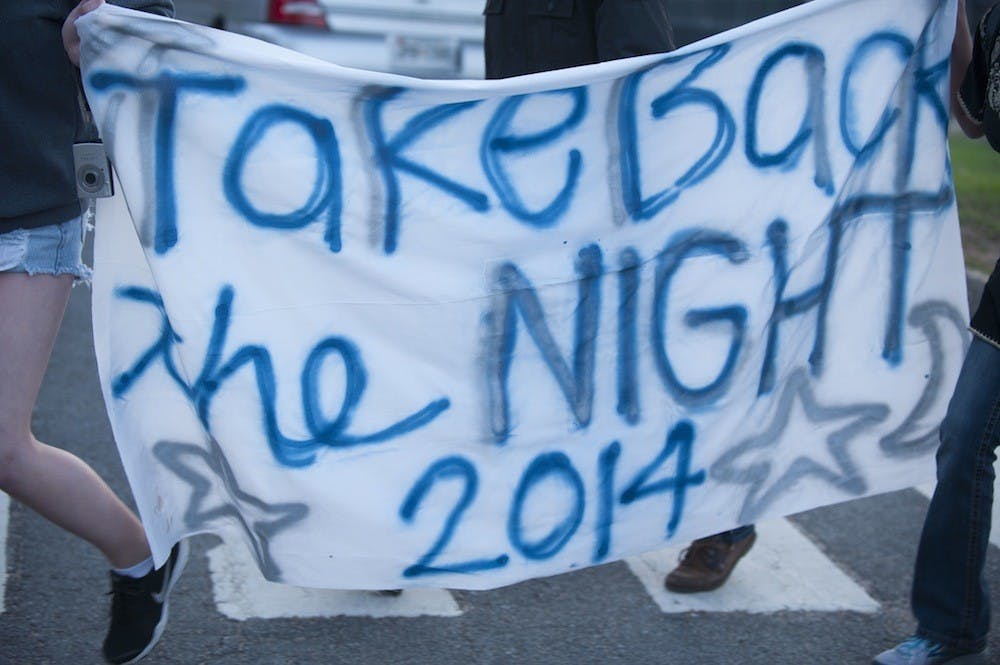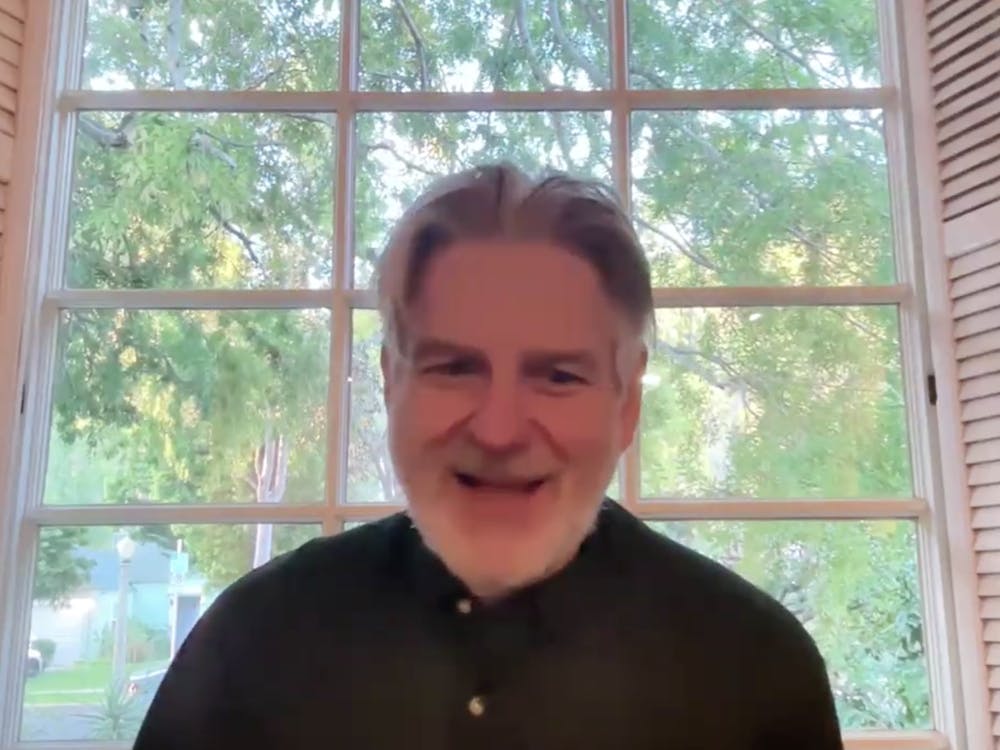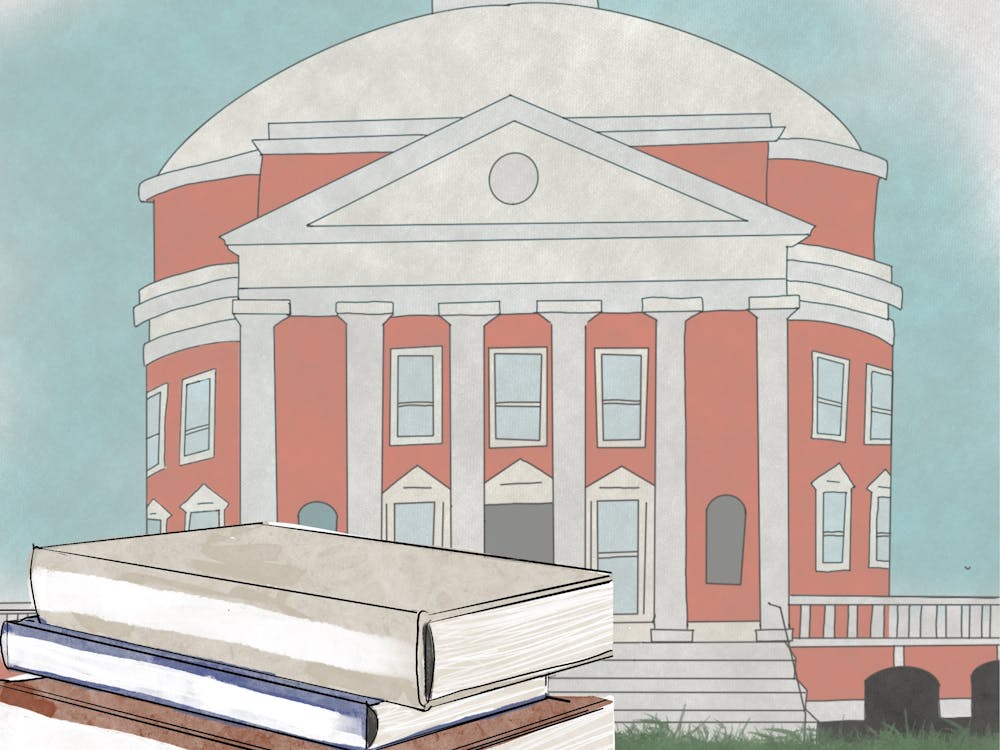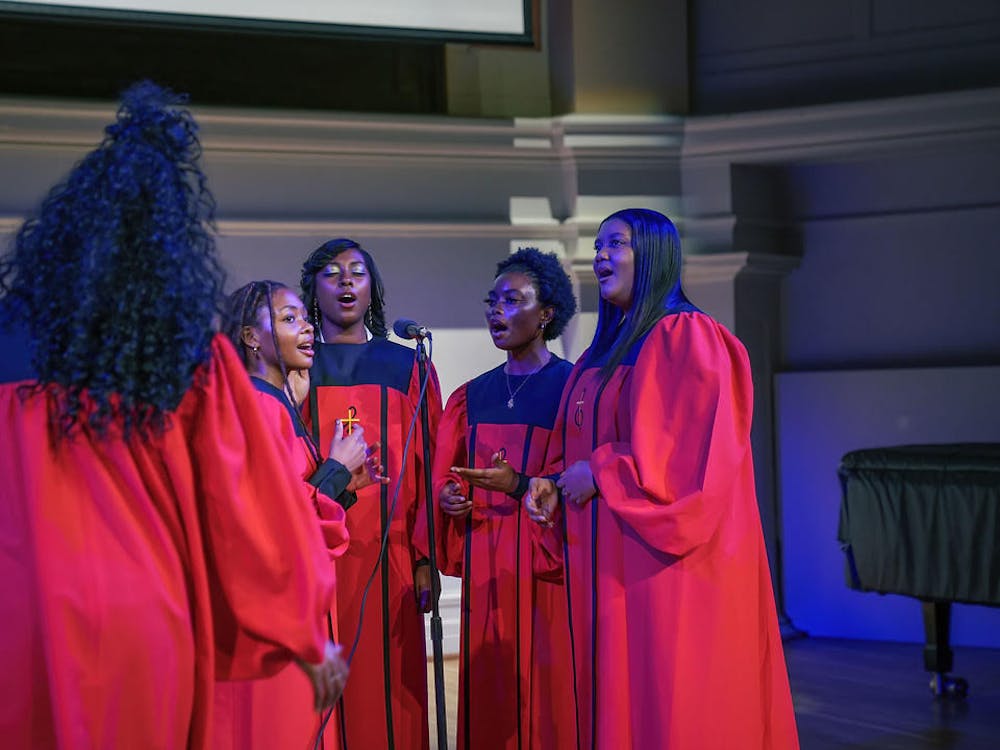Take Back the Night, a national organization founded in 1999 which “seeks to end sexual assault, domestic violence, dating violence, sexual abuse and all other forms of sexual violence,” according to its website, has shown its presence in full force this week as the University chapter hosts a number of events leading up to Thursday night’s rally and vigil. As a part of the roster, TBTN held an Open Arts Slam Wednesday night on the mezzanine of the University bookstore.
The performance space was simple: a microphone and electric keyboard stood up front, while a table with refreshments in the corner encouraged mingling and chatting before the event began. The venue held about 80 chairs, but more had to be called for before long as the small space quickly filled.
Event chair Melanie Lyra Bartell, a fourth-year College student, welcomed all in attendance. She was followed by Destinie Thomas, an Open Arts Slam committee member and fourth-year Education student, who announced this was “an open forum [where] everyone [was] welcome to speak.”
Poems were provided at the table up front for those who wished to add their voice to the chorus but did not come prepared with a piece of their own.
The first speaker was a male student who began the night by generating loud chuckles from the audience with the simple assertion: “Kids are gross.” He went on to recite a self-written poem speculating what sort of world his hypothetical daughter would grow up in. The generally humorous poem touched on serious matters like dating and rejection, but overall it was filled with great optimism. His words painted vibrant images of a place where women are “collages” of their experiences and “it is OK to have Hillary Clinton as [his] desktop background.”
After this first performance, the event took on a much more solemn tone as female students presented their versions of their own encounters with sexual violence — also by way of poetry. Some were recited from memory; some involved explicit details of their assaults; some incorporated humorous lines into their heartbreaking accounts. One was played to music, but all were powerful beyond measure.
The courage and honesty in Bartell’s speech, in particular, caused a rippling effect throughout the room, and the spaces between performances grew smaller as more and more people were inspired to share their experiences. To Bartell, this sharing is crucial to the survivors’ healing process — but she admits it can be intimidating.
“This event allows a lot of vulnerability,” she said. “There is no curtain. You’re basically coming out as a survivor and [the Open Arts Slam] provides a safe environment to do that.”
The event encouraged students to express themselves through different mediums according to their interests and talents.
“A lot of times trauma is hard to put into words or into a story,” Bartell said. She noted she often turns to dance or painting “to express really difficult emotions.”
Fourth-year College student Jackie Donovan, a TBTN committee member, also shared a poem she wrote about her struggle to come to terms with her own experience.
“I think poetry has always been something that allows people to feel and live with each other,” she said. “It unites people.”
Though poetry acts a vehicle to release pent-up emotions, reliving the experience and sharing it with an audience of strangers can be daunting.
“I know [performing] causes a lot of anxiety,” Donovan said. “Letting go and putting [one’s story] out in the open is scary, but I’m just really proud of those who came forward.”
Though several speakers’ hands shook, their voices were consistently firm.
“The most rewarding part is just seeing survivors gain their voices back,” Thomas said. “I’m so happy we go to a university where survivors have a chance to share their stories. There’s so much power in their stories and in their voices.”





